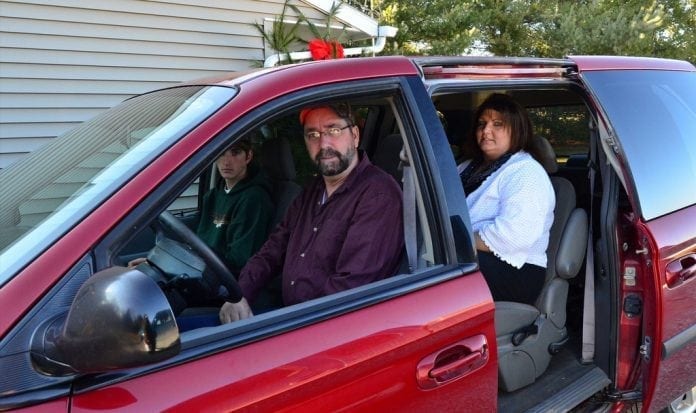Motorists who car share for three days per week would slice their annual commuting costs._
Commuters in Cardiff could save over £700 if they car shared with four or more people three days out of the working week.
New research from a national commuting survey by leading automotive retailer, Inchcape paints a colourful picture of car sharing potential.
The full report [1] highlights how commuters across the country could be saving themselves time and money, whilst also helping to tackle congestion, pollution and traffic jams.
People in Cardiff that drive to work could save over £300 annually
(£311.26) if they car shared two days a week with two people in the car. This could be upped to £466.89 if they car shared for three days.
By adding even more people to the car, even further savings could be made. Based on three people sharing, annual savings could reach over £600.
The study of over 2,000 car commuters across Wales, England, Northern Ireland and Scotland reveals the average weekly spend in the UK on driving to work is £38.72, equivalent to more than £1,700 over the course of a year.
The research compares commuting costs and potential savings across the major cities.
On average in the UK, if four people were to share the commute twice a week they could each save £527 annually – the price of return flights to the Maldives. Upped to three times per week, they could each save almost £791.
If three people were to share twice a week they could each save £468 and even if just two people carpooled each person could make a substantial saving of £351.
This study is supported by Touchpoints data which shows 18.6 million people in the UK commute alone by car whilst only 12.3 million car share.
If just 10% of people currently commuting alone paired up and car shared twice a week, the combined saving would be over £650 million per year.
In addition to financial savings, drivers who car share could save almost 20 minutes on their daily journey, according to YouGov. The average commute time for those travelling alone is 72 minutes whilst for those car sharing it’s less than an hour at 54 minutes.
Dan Goodfellow from Inchcape said, “Although it might not be a viable option for people to car share every day, taking it in turns and making a small effort even a couple of times a week by creating a timetable with colleagues, friends and family, can have a huge financial and environmental impact.”
The survey also offers insight into savings per city and region based on two, three and four people sharing, across two or three days per week.
In cities with the most expensive car commutes such as Belfast, which spends £60.50 on average per week, two people sharing each week could save £549 per person every year.
Plymouth has the second costliest drivers, spending an average £54 every week, making an annual saving of £491 per person.
Unsurprisingly, London also made the top three, spending an average of
£45 per week. Car sharing with one other could put £412 back in Londoners’ pockets over the course of the year.
Ali Clabburn, CEO of the UK’s biggest car share community, Liftshare.com said, “Our average member who car shares regularly, typically 4 days a week, saves about £1000 per year, depending on fuel prices, which is equivalent to almost a tonne of CO2 emissions.
“In fact, if half of UK motorist’s car shared just one day a week, not only would they save money but congestion and pollution would be reduced by 10% and traffic jams by 20%.”
To find out how much commuters across the country could save please
visit:
https://www.inchcape.co.uk/blog/driving-life/how-much-could-you-save-by-car-sharing-on-your-commute/
[2]
Help keep news FREE for our readers
Supporting your local community newspaper/online news outlet is crucial now more than ever. If you believe in independent journalism, then consider making a valuable contribution by making a one-time or monthly donation. We operate in rural areas where providing unbiased news can be challenging. Read More About Supporting The West Wales Chronicle
























